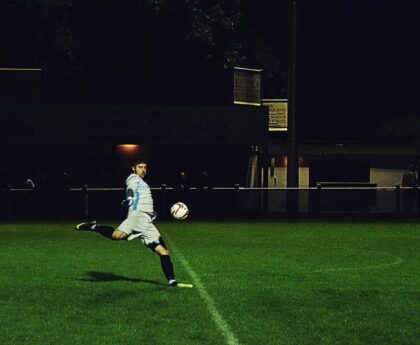Australia’s Sam Kerr Calls for More Soccer Funding After Women’s World Cup Run
Introduction
Australia’s dream of Women’s World Cup glory came to an end after a 3-1 defeat to England. However, captain Sam Kerr used this moment to call for more funding in Australian soccer, emphasizing the need for investment in development and grassroots programs. Kerr’s plea reflects the growing interest in women’s soccer, as evidenced by the record-breaking viewing figures and audience numbers during the tournament. Other players and coaches, including vice-captain Steph Catley and Australia manager Tony Gustavsson, echoed Kerr’s sentiments and advocated for improved financial support.
The Legacy Off the Pitch
Kerr, in the aftermath of the semifinal loss, emphasized that the legacy of the Women’s World Cup is not just about on-pitch performance but also the impact it has beyond the tournament. She stressed the importance of funding in development and grassroots programs, highlighting the need for better facilities and improved standards for women in football.
This emphasis on the legacy off the pitch reflects a shift in the way sports are viewed and valued. The impact that sports, particularly women’s sports, can have in shaping society and empowering individuals is increasingly recognized. Kerr’s call for funding is not just about the immediate benefits of improved resources, but also about creating a sustainable future for the sport and nurturing the next generation of players.
The Power of Numbers
The success of the Australian women’s team at the Women’s World Cup is reflected in the record-breaking viewing figures and audience numbers. The semifinal match reached an audience of 11.15 million in Australia, with a national average audience of 7.13 million. These figures not only highlight the high level of interest in women’s soccer but also demonstrate the potential for growth and investment in the sport.
These numbers are a clear indication that people are interested in watching women’s soccer and that there is a growing fan base. This increased visibility and support should be used as an opportunity to push for more funding and resources for the development of the sport at all levels.
A Call for Equal Funding
Steph Catley, vice-captain of the Australian team, joined Kerr in calling for better financial support for soccer in Australia. She emphasized the need to address the funding disparities between different sports and highlighted that football, in general, is not adequately funded.
This call for equal funding is not only about fairness but also about recognizing the potential of women’s soccer and investing in its growth. The success of the Matildas at the Women’s World Cup has shown that there is a strong demand for the sport, and it is important to capitalize on this momentum by providing the necessary resources.
Perspective from Coaches
Australian manager Tony Gustavsson agreed with his players’ pleas for improved funding, stating that this should be the start of something and that financial support is crucial for the growth of the sport.
Even England’s Lionesses’ coach, Sarina Wiegman, voiced her support for Australia’s efforts to grow the game. She highlighted the importance of investing in youth development and creating better facilities for both boys and girls, from six-year-olds to adult players.
These perspectives from coaches demonstrate the recognition among the soccer community that investment in all aspects of the game is essential for its success and future sustainability.
Conclusion: Seizing the Opportunity
The Women’s World Cup has provided Australia with a unique opportunity to showcase the talent and potential of women’s soccer. The record-breaking audience figures and the success of the Matildas highlight the growing interest in the sport.
Now is the time for Australia to capitalize on this momentum and secure the necessary funding and resources to support the growth of women’s soccer. This means investing in development and grassroots programs, improving facilities, and creating equal opportunities for players at all levels.
By doing so, Australia can build a strong foundation for the future of women’s soccer and leave a lasting legacy that extends beyond the field of play.

<< photo by Alex Azabache >>
The image is for illustrative purposes only and does not depict the actual situation.
You might want to read !
- The Lionesses’ Gamble: England’s Winning Strategy against Sam Kerr
- “The Battle for the Crown: Spain vs. England – Live Stream the Women’s World Cup Final”
- Franco’s Future in MLB Uncertain Amid Investigation into Alleged Impropriety
- “Harris County Officer-Involved Shooting: Unraveling the Fragile Threads of Public Safety”
- Robin Roberts’ Bachelorette Bash Turns “GMA” Upside Down
- Opulence and Indulgence: Inside Brad Pitt and Jennifer Aniston’s Lavish ‘Wall of Caviar’ Soiree
- A Deep Dive into Harris County’s Ambitious $2.4 Billion Budget Proposal
- “A.J. Armstrong: A Conviction in the 2016 Murder Case Sends Shockwaves and Sparks Reflection on Youth Violence”
- Pandemic Puzzles: Unraveling the Surge of Dengue Fever in Florida




